Abstract
This study identified psychosocial variables associated with the exceptional survival of nine cancer patients diagnosed as terminal. During open-ended interviews, subjects described their behaviors and emotions following the onset of disease and articulated personal explanations for their survival. Despite the methodological limitations inherent in this type of research, the similarity of the subjects' responses was compelling.
All subjects believed that there was a direct relationship between the outcomes experienced and their psychological states. They remained confident that they would not die, and asserted that these positive expectations were critical to the healing process. The report by subjects that they experienced major psychosocial changes in the months following their prognoses presents a serious challenge to the conclusions of a related study.
The subjects assumed responsibility for all aspects of their lives, including recovery. Thus, medical personnel were often used as consultants. All patients established a physician relationship characterized as trusting, meaningful, and healing. They indicated an intense desire to stay alive. Unlike their attitudes before illness, once the patients were confronted with the prospect of death, life suddenly became very precious.
Full text
PDF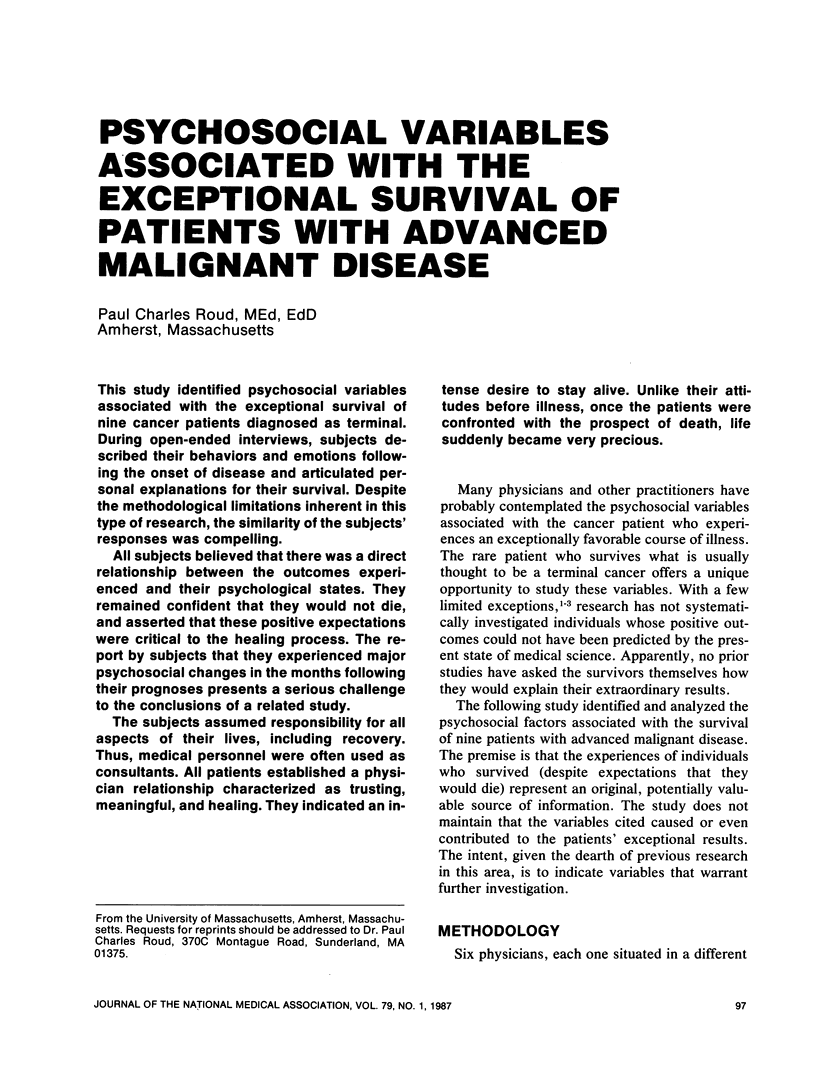
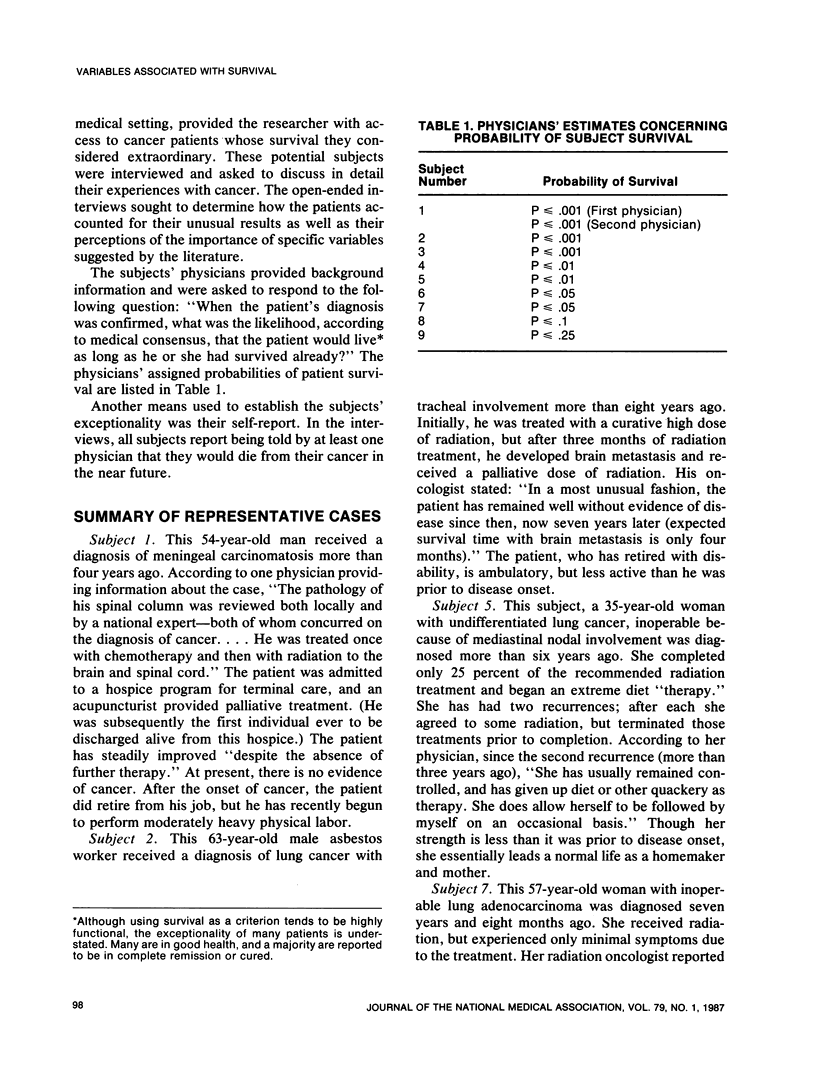
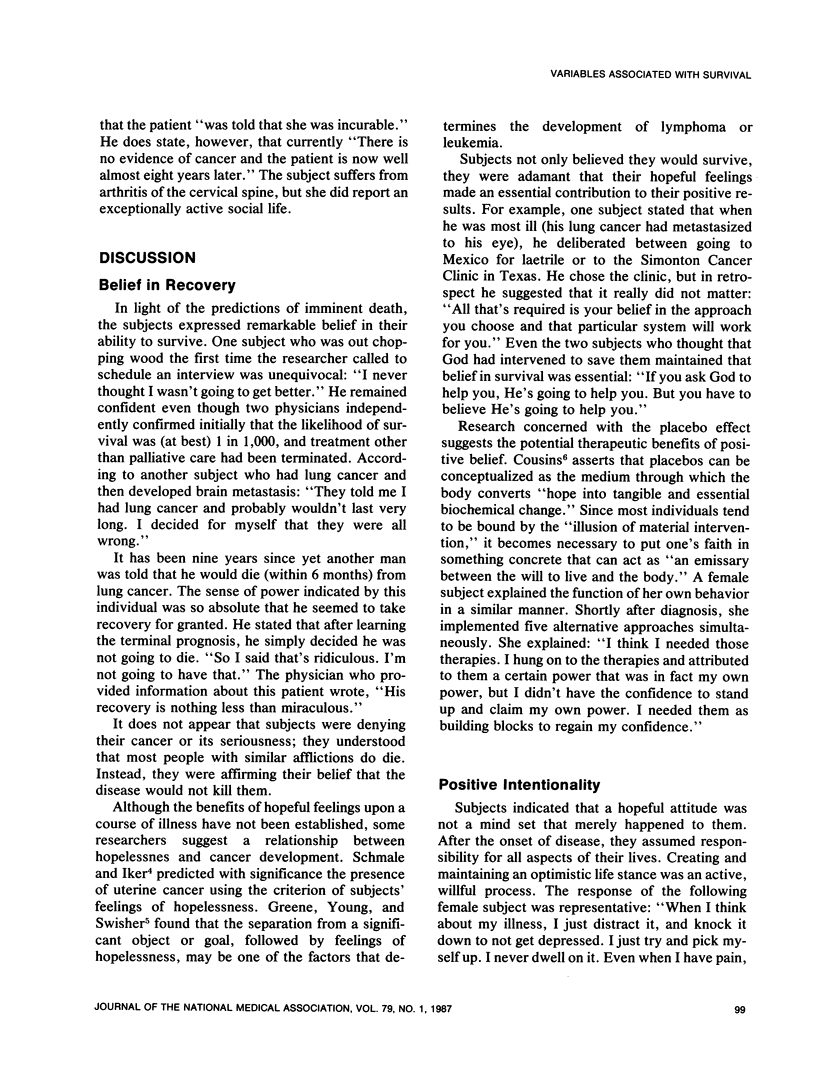
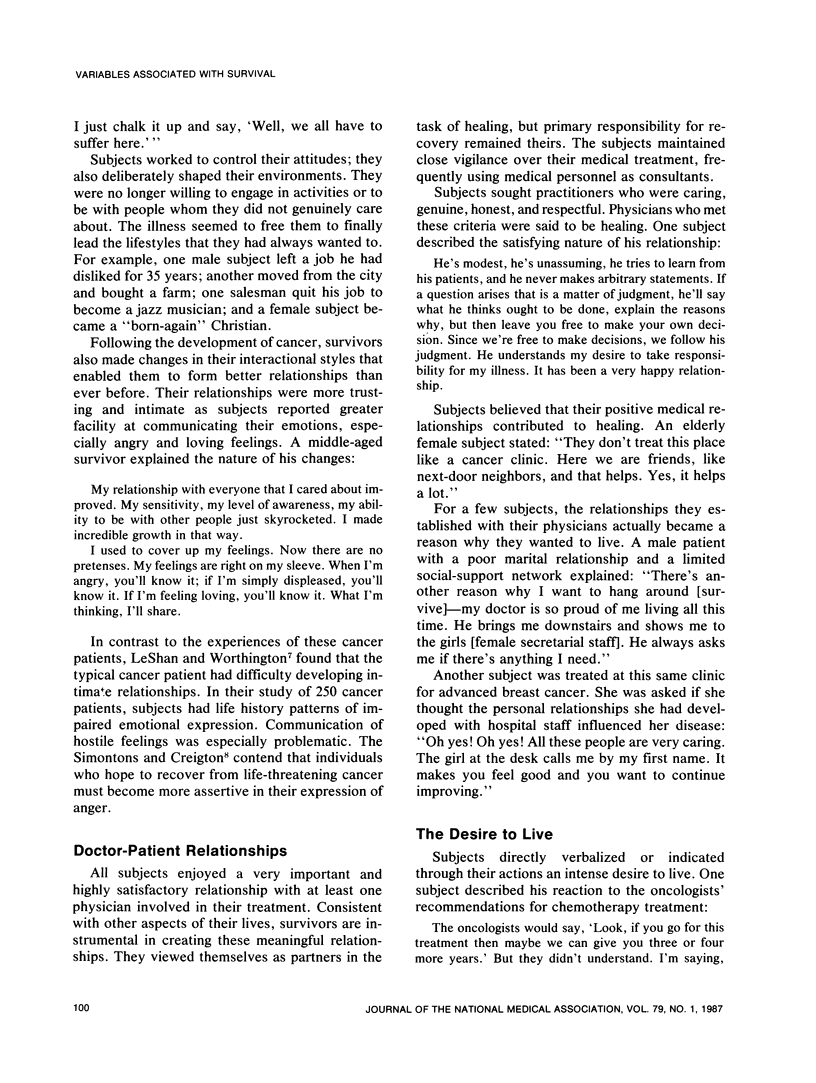
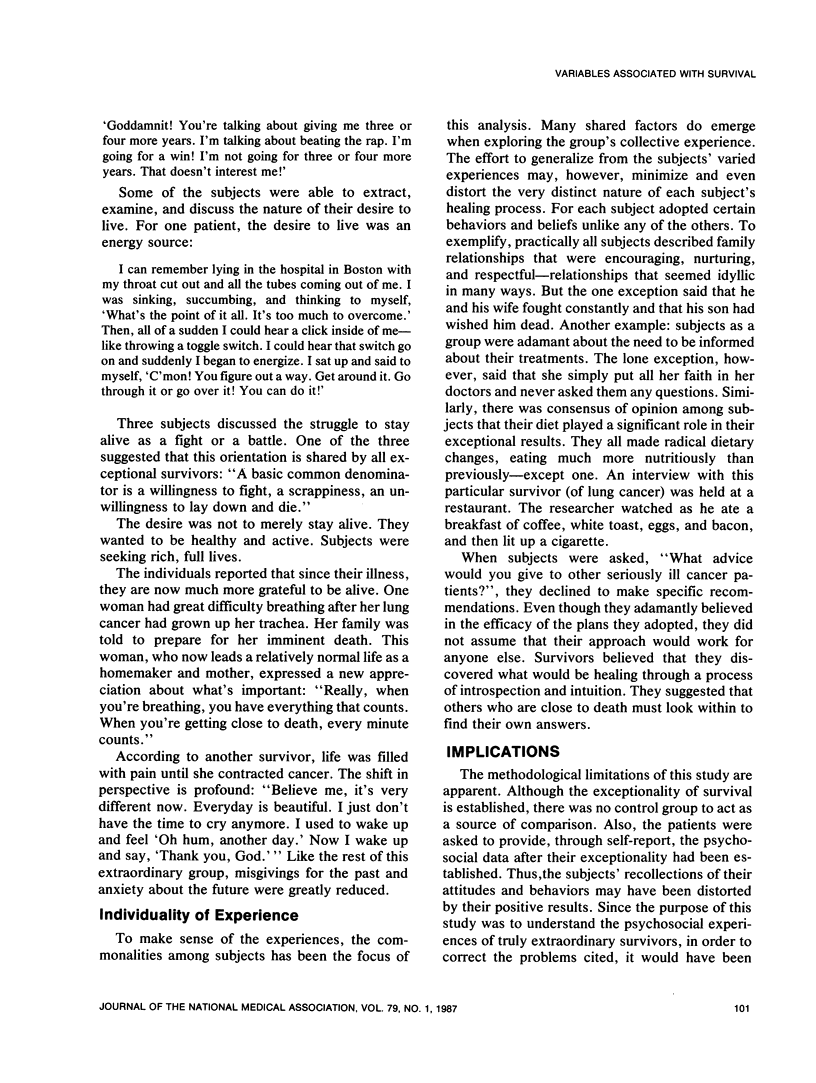
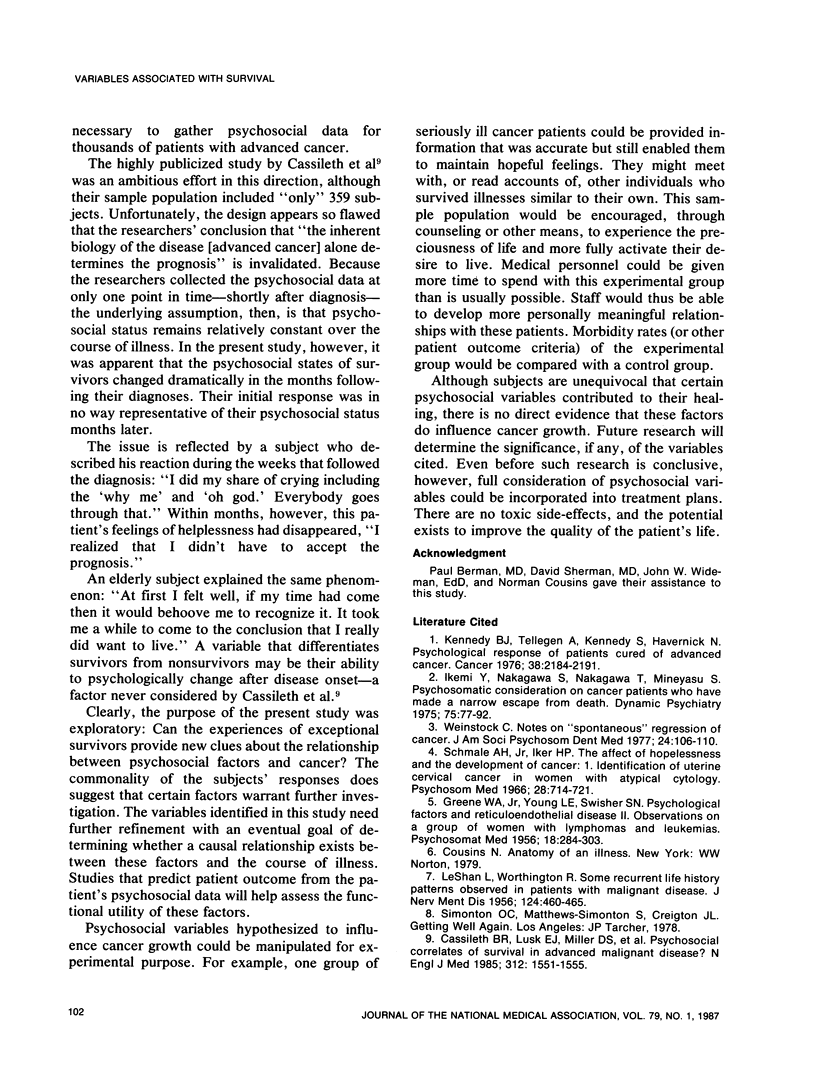
Selected References
These references are in PubMed. This may not be the complete list of references from this article.
- Cassileth B. R., Lusk E. J., Miller D. S., Brown L. L., Miller C. Psychosocial correlates of survival in advanced malignant disease? N Engl J Med. 1985 Jun 13;312(24):1551–1555. doi: 10.1056/NEJM198506133122406. [DOI] [PubMed] [Google Scholar]
- GREENE W. A., Jr, YOUNG L. E., SWISHER S. N. Psychological factors and reticuloendothelial disease. II. Observations on a group of women with lymphomas and leukemias. Psychosom Med. 1956 Jul-Aug;18(4):284–303. doi: 10.1097/00006842-195607000-00003. [DOI] [PubMed] [Google Scholar]
- Kennedy B. J., Tellegen A., Kennedy S., Havernick N. Psychological response of patients cured of advanced cancer. Cancer. 1976 Nov;38(5):2184–2191. doi: 10.1002/1097-0142(197611)38:5<2184::aid-cncr2820380549>3.0.co;2-9. [DOI] [PubMed] [Google Scholar]
- LESHAN L., WORTHINGTON R. E. Some recurrent life history patterns observed in patients with malignant disease. J Nerv Ment Dis. 1956 Nov;124(5):460–465. doi: 10.1097/00005053-195611000-00004. [DOI] [PubMed] [Google Scholar]
- Weinstock C. Notes on "spontaneous" regression of cancer. J Am Soc Psychosom Dent Med. 1977;24(4):106–110. [PubMed] [Google Scholar]



